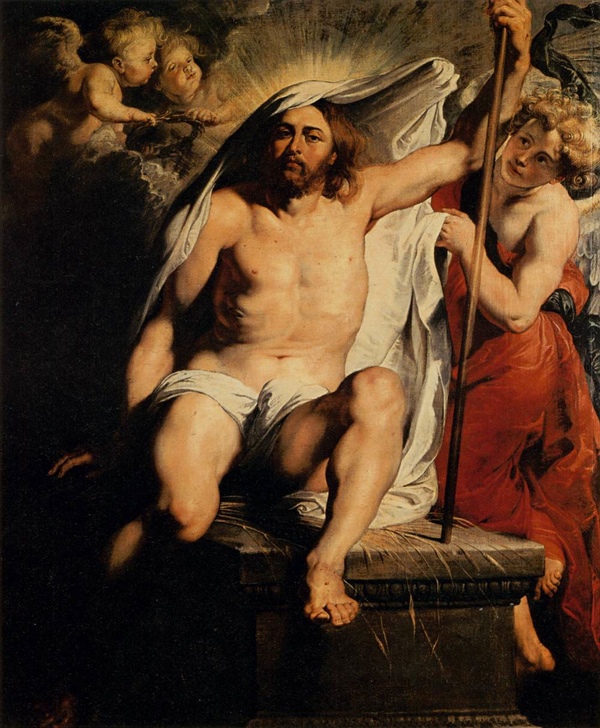
Rise heart ; thy Lord is risen. Sing his praise
Without delayes,
Who takes thee by the hand, that thou likewise
With him mayst rise :
That, as his death calcined thee to dust,
His life may make thee gold, and much more just.
Awake, my lute, and struggle for thy part
With all thy art.
The crosse taught all wood to resound his name
Who bore the same.
His stretched sinews taught all strings, what key
Is best to celebrate this most high day.
Consort both heart and lute, and twist a song
Pleasant and long :
Or since all music is but three parts vied,
And multiplied ;
O let thy blessed Spirit bear a part,
And make up our defects with his sweet art.
I got me flowers to straw thy way ;
I got me boughs off many a tree :
But thou wast up by break of day,
And brought’st thy sweets along with thee.
The Sunne arising in the East,
Though he give light, and th’ East perfume ;
If they should offer to contest
With thy arising, they presume.
Can there be any day but this,
Though many sunnes to shine endeavour ?
We count three hundred, but we misse :
There is but one, and that one ever.
—George Herbert, Easter first published in The Temple (1633) from The Poetical Works of George Herbert pp. 236-38 (1857).
This is a complex poem, in two parts, and there is good reason to believe that the second, less formal part is actually intended to be sung to the accompaniment of a lute. George Herbert, in any event, was an accomplished lutenist and a great fan of the works of John Dowland. If that is so, then Dowland’s The Most Sacred Queen Elizabeth, Her Galliard (from Varietie of Lute Lessons (1610) prepared by his son Robert Dowland) perfectly matches the meter and rhyme scheme of this poem and may well have been intended as the music to which it was to have been sung.
The first part of the poem is, however, more dramatic and triumphant. Herbert invokes his lute, but the words call for more of an orchestral setting. Listen to a performance of Johann Sebastian Bach’s Cantata “Der Himmel lacht!, die Erde jubilieret” composed for Easter Sunday, BWV 31 (ca. 1715), in a performance by The Amsterdam Baroque Orchestra & Choir, Ton Koopman, conductor:


